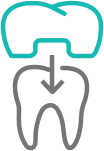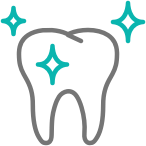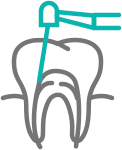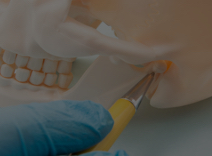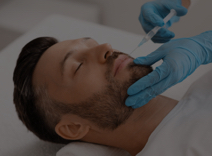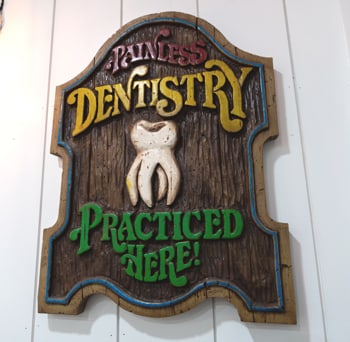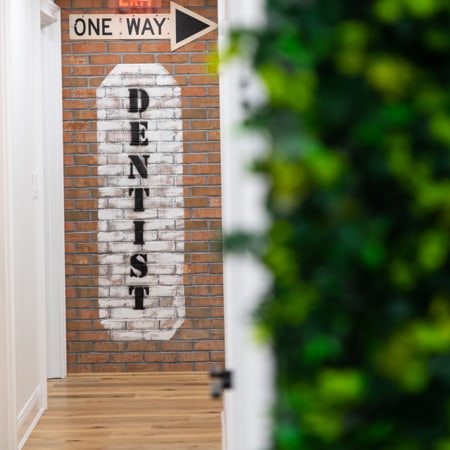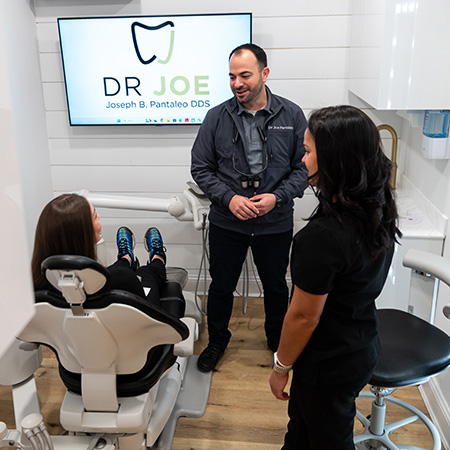Temporomandibular joint disorder (TMD) is an uncomfortable condition that can cause pain in your jaw joint and/or the muscles of your jaw, and which sometimes leads to facial discomfort, limited jaw mobility, and symptoms like vertigo or tinnitus. Pain from TMD can significantly disrupt a person’s life.
TMD can be cured with a range of treatments, from home-based, noninvasive approaches like heat therapy and avoiding bad habits/posture, to more advanced solutions like physical therapy and custom mouthguards.
If you’re experiencing the symptoms of TMJD, book an appointment with your dentist to discuss treatment options and formulate a plan to get you feeling better.
What is Temporomandibular Joint (TMJ) Disorder?
Temporomandibular joint disorder (TMD), also known as TMJ, is a group of different health conditions that affect the jaw joints and/or the muscles that support them. A person has two jaw joints—one on either side of the jaw—and either can be affected by TMD.
Many cases of TMD may last only a short time, while others can prove to be chronic or long-lasting. If left untreated, TMD tends to get worse—and may evolve into a more serious condition.
Causes of TMJ Disorder
The causes of TMD are not always clear. In some cases, the condition may result from injury to the jaw or temporomandibular joint, while genetics may also contribute.
Other risk factors include:
- Teeth grinding
- Arthritis
- Prolonged stress
- Joint hypermobility
Symptoms of TMJ Disorders
TMJ disorders present with a variety of symptoms, such as:
- Pain or stiffness in the jaw joint and/or the jaw muscles
- Pain that spreads from the jaw to the face or the neck
- Reduced mobility or locking of the jaw
- Ringing in the ears, hearing loss, or dizziness
- Painful grating or clicking sounds in the jaw
- Malocclusion (a change in how the upper and lower teeth fit together)
Note that the jaw joints and jaw muscles often make popping and clicking sounds. As long as these sounds aren’t accompanied by physical pain, they’re normal and don’t need to be addressed. If you do experience pain, however, make sure to contact your dentist/doctor.
Treating TMJ Disorders
For many people, the symptoms of TMJD go away over time, even without treatment. For others, however, symptoms may persist or even get worse.
Experts tend to prefer noninvasive treatments for TMD, as evidence for surgical procedures is often still inconclusive, so many of the preferred approaches are steps that you can take at home or at work.
Let’s discuss some of the relevant options.
Avoiding Habits that Exacerbate TMJ Disorder
The first line of defense against TMD is adjusting your lifestyle and practicing self-care at home. Home-based treatments may include:
- Eating soft foods
- Combining heat or cold with exercise to strengthen the jaw and improve its movement
- Avoiding habits that can make TMJD worse (clenching the jaw, chewing gum, biting your nails, etc.)
- Lowering stress levels or adjusting your environment to be less stressful
In many cases, the steps are enough to manage or even cure TMD. If these treatments don’t work, or if your doctor/dentist is able to narrow your TMJ disorder down to a specific type or cause of the disorder, then they may consider the treatments discussed below.
Non-Surgical Therapies
Several nonsurgical treatments are available for TMJ disorder:
- Physical therapy: Manual physical therapy (where the therapist directly manipulates your muscles and joints) has been shown to help with TMD.
- Behavioral health approaches: Behavioral approaches like cognitive behavioral therapy and biofeedback monitoring have also been shown to have positive effects. Biofeedback involves learning to identify when you engage in unwanted behaviours (for instance, tightening your jaw) so that you can instead choose to relax.
- Mouth guards: A custom-fitted night guard can help deal with specific causes of TMD like teeth grinding or jaw injury.
Medication
If home-based treatments don’t help with TMD, both over-the-counter and prescribed medications are available to manage symptoms and/or help treat the condition. Among these medications are:
- Non-steroidal anti-inflammatory drugs (likes NSAIDS)
- Muscle relaxers
- Local anesthetics
- Corticosteroids
Based on your personal circumstances and health history, your health care professional will help you decide which medications are appropriate.
Surgeries
In rare or severe cases, your doctor/dentist may suggest surgery. Surgical procedures are the last line of treatment for TMJD, and sometimes may make your issues worse. Talk with your doctor/dentist about the risks of surgery before opting for this path.
Come Visit Us For Effective Care
While TMJ disorder can be a literal pain to live with, it can be managed—and often even cured. A variety of treatments, starting with home-based approaches but also including stronger interventions like wearing a custom-fit mouthguard, are able to deal with the condition.
Don’t let TMJ disorder force you to live in unneeded discomfort. Book an appointment at Dr. Joe’s. We’ll assess your situation and design a customized treatment plan to help you restore function to your jaw. It’s our privilege to be part of your smile.




